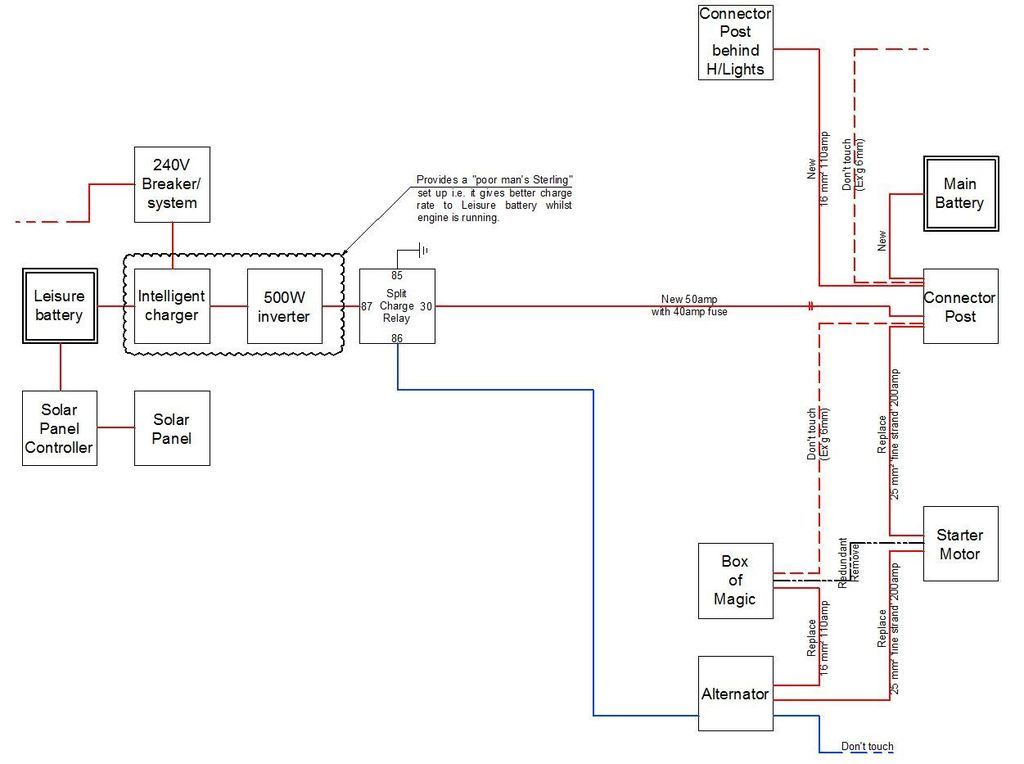Citizen Smith wrote:The 30A fuse sometimes blows when I start up after a long stand (weeks not days) but maybe a fuse in the charge line is looking for trouble with a 90A alternator.
It's not the alternator that blows the fuse, it's the short burst of current from the main battery into the (depleted) leisure battery that does it.
It's worth remembering that alternators do not "push" out current to batteries (or any thing else) the batteries (or any thing else) "sucks" the current from the alternator. So, once the initial rush of current from your starter battery has topped up your leisure, so that the voltage of both batteries
(remember, they are is parallel) is say 12.6 volts
(hypothetically as with the engine off they are no longer in parallel, but I hope you get the picture) then the alternator will only get a relatively few amps "sucked" from it. I have tested this myself by the way.
~~~~~~~~~~~~~~~~~~~~~~~~~~~~~~~~~~~~~~~~~~~~~~~~~~~~~~~~~~~~~~~~~~~~~~~~~~~~~
Slight aside = It is for this reason I use my "poor man's"
Sterling charger system. This is a simple 300W inverter (useful for other things too of course) which is fed by the output wire from the split charge relay (so it comes on when the engine is running). The inverter then feeds one of these new type "Smart" battery chargers (12A in my case). This means my two batteries are never actually connected together and the leisure battery gets the full advantage of "smart" charging (at 14.5Volts during the first phase of charging). So, faster charging, better care of battery and the starter battery is left on it's own to just start the engine, as nature intended

I also use a low voltage cut off, so that I cannot damage my leisure battery by over discharging it. I have it set to sound a buzzer actually, rather than cut it off. It's set to sound at 11.8 Volts at present. This may seem low, but within a few seconds of any load being removed, the battery voltage rises back up about .5 of a Volt, so I use that as the measuring point.

